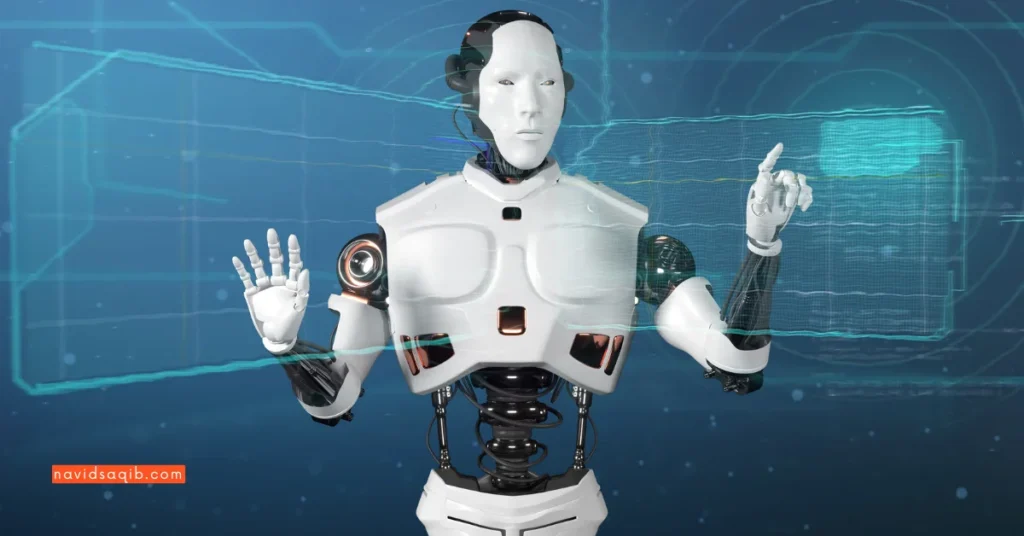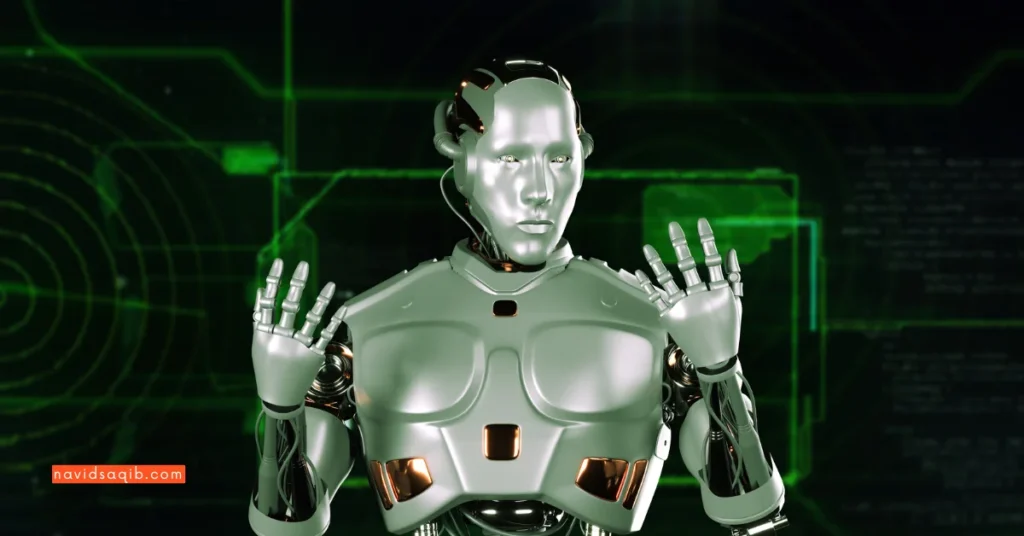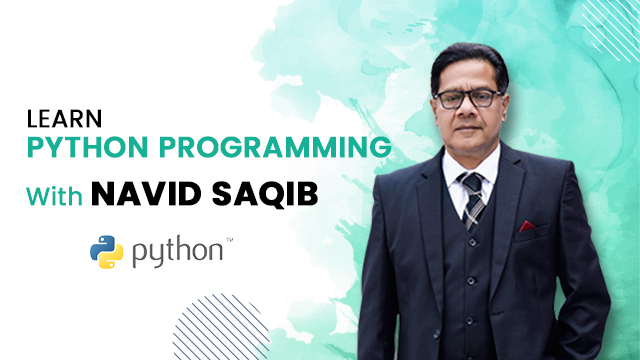AI has revolutionized teaching, particularly with the integration of AI for Teachers in education. It empowers educators to improve their varied roles in the classroom. They can now deliver more engaging and efficient learning experiences.
In today’s fast, challenging world, educational technology is rising. It opens new doors to learning and teaching. It lets teachers be mentors, not just complete daily tasks. The teachers can use AI to find creative ways to explain concepts.
Teachers can choose lessons that help individual learning using AI tools. It can fill the gap to bring understanding and unlock inclusive education. This teaching method is now possible due to AI’s transformative role in schools.
The smart systems in schools analyze student performance. They provide insights to improve education, unlike the traditional system. AI in education boosts classroom innovations. They aim to engage students and foster collaboration. AI enables the automating of grading and creatively adapting learning modules.
This increases AI’s role for educators. It empowers them to use resources that support their professional education and development. It can make educators effective mentors. AI tools for teachers can help educators with diverse classrooms.
They can also transform education into a student-focused learning process. These AI-driven tools are not just a teaching aid. They are the future of learning. They will turn ordinary students into real champions.

Stay Ahead in Your Studies!
Don’t miss out on valuable resources that can help you excel in your academic journey!
How is AI Transforming the Role of Teachers?
With a strong position in the teaching field, I have always sought ways to make my teaching more efficient. Now, with AI integration, I have reshaped the ways how to connect with our students. With evolving classroom technology, we are not bound to represent just one-size-fits-all techniques.

Instead, we can showcase personalized learning. It uses lessons tailored to each student’s needs. It can make the learning process more convenient and deliver more meaningful information to the students.
What Benefits Does AI Bring to Teaching and Learning?
AI is an adaptive technology. It can boost students’ creativity and critical thinking. I will let AI handle routine admin tasks. The grading and assessment task can be easily fulfilled by AL and the teachers can focus on delivering quality education. AI can enhance learning. It offers tools to simplify your guidance and inspire students.
AI’s benefits in classrooms are not limited. They are growing as AI improves the teacher-to-student learning method. Teachers’ delivery of quality education and students’ views on it can enable AI to intervene and support them. With automated support systems, I have noticed that AI can reduce admin work. I can then use that time to innovate the learning method. AI’s ability to personalize education will help teachers. It will ensure that no student is left behind.
AI has transformed education. It created dynamic lesions and simplified communication. Now, teaching is efficient and rewarding for both learners and teachers.
Can AI Replace Teachers or Enhance Their Role?
As a teacher, I see that AI can replace the current education system. But, it can partner with us to deliver our best work. It can boost the student connections in learning on a human level. AI can help streamline tasks and provide insights. It has unlimited benefits. So, it can replace teachers. But, it lacks emotional intelligence and creativity.
The key point is to master where technology complements educators’ strengths. It should be a partner, not a competitor. A teacher-AI partnership can deliver what matters most. It can inspire growth and build relationships. We must know AI’s limits in teaching. It should support human-centered teaching by balancing pure interaction with innovation.
What Are the Key AI Tools for Teachers?
As a professional teacher, I can appreciate how AI tools help me to manage the classroom and engage the students in the learning process. From smart systems that aid lesson planning to personalized learning tools, these apps redefine education.

Let me clarify with a simple example. You are a teacher delivering education in the classroom. AI-based classroom solutions can automate tasks like grading and assessments. It will provide you with more time to focus on your teaching. Smart classroom tools have evolved. They now meet diverse learning needs and maintain high education standards.
It’s exciting to see how new tools are improving our learning. They are turning educators into surprising mentors.
List of some important ai tools for Teachers. which help enhance time management, create Lesson Planning and Content Creation, Classroom Management, Student Engagement and Learning, Personalized Learning, Language and Writing Support, Collaboration and Productivity, STEM Education, Inclusivity and Accessibility, Classroom Analytics
Which AI Tools Help in Classroom Management?
You can manage a classroom with ease. But, AI tools will make it more efficient and stress-free. These AI tools are designed to address the specific issues that can create hurdles in producing a smooth learning process. AI for behavior tracking lets me monitor my students’ patterns. I can find where they need my support so no one falls behind.
Real-time monitoring and AI for attendance can help ensure a smooth and organized teaching experience. It can allow me to focus on creating an engaging education classroom. These advances can make the classroom a seamless, efficient learning process.
Classroom Management Tools
- Classcraft: Gamifies classroom behavior and engagement using AI insights.
- GoGuardian: Monitors student activity on devices and ensures they stay focused on learning tasks.
- LanSchool: Helps teachers manage student devices and maintain a productive classroom environment.
How Can Teachers Use AI for Curriculum Design?
When we talk about curriculum design, I can assure you that AI software can be a game changer. Using lesson planning tools, I can create and organize lessons. They will engage my diverse students’ needs. If you use AI to create content for the curriculum, they can enjoy the learning process. It will ensure your students engage in learning. It will also align topics with the learning goals.
AI-powered design can provide lesson insights. It can suggest improvements based on your student’s performance.
This approach enables data-driven teaching. It helps me create an adaptive curriculum. It boosts my student’s learning in a more efficient, dynamic space.
What Are Popular AI Tools for Assessments?
As a teacher, I have sought ways to make my tests better. I want them to be both efficient and accurate. By using the AI platforms, I have gained a huge help to solve this problem effectively. Automated grading systems help me assess tests promptly.
They save time for other tasks, like manual grading. Plagiarism checkers have many benefits. However, I must ensure the student’s work is original for fair evaluations.
These are the best tools to prove my unbiased, data-driven assessments. They can track the student’s progress and find areas for improvement. AI in assessments transforms how we evaluate student learning. It uses tools for tracking performance and detecting errors. It can make the learning process more precise and efficient.
Assessment and Feedback Tools
- Edulastic: AI-assisted formative assessments with instant grading and insights.
- Gradescope: Streamlines grading of assignments and exams with AI to save time.
- Socrative: Offers real-time quizzes and assessments with AI-powered data analysis.
How Does AI Support Personalized Learning for Students?
As a teacher, I prefer AI integration. It revolutionizes personalized learning by focusing on each student’s needs. By using AI analytics, we can track and evaluate the suited performance in real-time. It will help us find areas of the student’s performance. We need to improve them.
By finding where students struggle, we can measure the facts. This will help us solve their problems in completing the learning process.
This data-driven approach helps us create a peaceful, effective school for every student. It can provide tailored support, like using AI for performance analysis. This can help us find learning gaps early.
It will let us interact before small hurdles become big challenges. It’s incredible to see how AI turns simple data into insights. They drive actionable, academic improvement for each learner.
How Does AI Analyze Student Performance?
AI helps track student learning and gain insights into their progress. All this becomes possible due to performance analysis tools. These tools and their AI in evaluations work together. They not only provide a grade but also help. They break down strengths and areas needing growth. It guides us in offering worthy feedback.
We can be able to offer learning progress tracking by using AI insights. These insights can help diagnose areas for improvement. They are accurate and immediate. These tools help us find learning gaps.
They also give us a real-time view of students’ attention and engagement. It leads to efficient, targeted teaching strategies. They can help each student reach their full potential and meet the learning goals.
How Does AI Enable Tailored Learning Paths?
I have seen that AI can create efficient, tailored learning for each student. This adaptive technology can build customized learning experiences to align with real-time scenarios. It can ensure that all students are involved in learning. No one will be left behind due to poor attention.
This process can be more effective by using the AI tutor that can act as a personalized assistant. These tutors can personalize their tutoring. It will adapt to the student’s learning style and needs. It will provide peace of mind without overwhelming them.
These adaptive learning tools are hitting the mark in making education effective and inclusive for each student. It can provide individualized learning to optimize the learning of individual students.
We can use AI tutoring to personalize education. It will ensure every learner gets the support they need to succeed with AI for Teachers in education.
What Are the Ethical Implications of AI in Education?
I know with the rise of AI systems in the classrooms, the implementation of ethical considerations is vital. when we talk about data privacy, as we know in today’s world, AI is helping us to manage the student’s information. we need to be protective in addressing the privacy challenges in AI. It will protect our student information security from being overridden.
Adopting ethical AI practices is critical to ensure that personal student data remains protected. If we use AI in education, we must foresee its impact. We should aim to minimize future hurdles. AI usage must protect personal student data. Privacy in education is a priority.
How Can Teachers Address Data Privacy Concerns?
When we talk about data privacy, we must note that a teacher must protect student data. They must ensure data privacy and its compliance with regulations. One of the top prioritized aspects for addressing these issues is the integration of security protocols. When we educate ourselves about ethical AI usage, we can check student confidentiality.
This can involve school administrators working with educators. If they collaborate, they can ensure proper data protection in AI. This will make students to be beneficial from the AI tools and not worry about their personal information.
By following these principles, we can boost students’ trust in AI. It will reshape the future of education. It will provide AI for Teachers in education.
What Challenges Does AI Pose in the Classroom?
AI adoption is essential to make the educational process more exciting and worthwhile. But, we must face it. It can help solve classroom challenges. In the classroom, we as teachers can face many challenges. These include adapting to students and addressing barriers to AI integration. These hurdles can come because of inconsistent access and equity.
There is a real-time risk in over-relying on AI. We may think classroom tech only offers opportunities. the risk can be denying teaching skills of real humans of personal connections. These are not only barriers let’s not forget the tech barriers. These could be gaps in access, resources, and efforts to equalize education for all. This balancing act needs attention and we are still trying to figure out it.
What Does the Future Hold for AI in Education?
Are you still thinking about the future of AI in education? I’m with you in this process and it’s not hard to feel excited about this integration. We are heading towards a complete change. Emerging technologies like generative AI and AR/VR in education are revolutionizing learning. They are also changing tech-related learning.
Just imagine the immersive learning experiences. Students would be hooked on exploring the historical events in the books. But wait, they won’t do this anymore. This AI integration lets them view the past through virtual reality or use AI tools. This will also help them to achieve personalized lessons in real-time.
What Emerging AI Technologies Should Teachers Watch For?
AI advancements are challenging the world daily. They are creating future-ready classrooms. Learning is now an engaging, tailored process, not just traditional. Our current challenge is how we can adapt to the pace of change.
It’s tough for teachers to stay ahead in today’s competitive world. But, next-gen AI tools can help. They can boost students’ creativity and collaboration beyond traditional learning.
Generative AI is alone transforming complex connections through creative content. future EdTech trends are providing smart assessment systems including adaptive feedback mechanisms.
We must adopt these AI-driven innovations. We shouldn’t waste time on useless, old teaching methods. We must focus on what matters most. A strong bond between teacher and student can spark curiosity. It can inspire a desire to learn in a peaceful setting.
If we navigate this changing environment, we can create a dynamic, tech-enhanced classroom. Its potential to boost learning is greater than ever.
How Can Teachers Prepare for an AI-Driven Future?
We must prepare for the AI-driven future. As a teacher, I must use AI tools for professional development. A mindset of continuous learning can help to achieve this measure. It’s not just about adopting this technology. It involves upskilling educators to prepare them for classroom challenges.
It can make them active in the classroom if they focus on teacher training. We can arrange this training efficiently. It should build AI skills to boost confidence and help them adopt these tools.
We believe AI training can help us teach better in the future. It will foster a culture of growth and curiosity. Staying ahead is costing us. We are forgetting our traditional teaching methods. We must make teacher development a top priority.
Conclusion
AI for Teachers in education is not just a trend. It’s about using AI to find new ways to improve education. These advances can help to empower student-teacher learning.
Only AI can provide the tools to improve education. It can boost teacher adaptability and drive innovation. In today’s world, education systems are evolving. It can support sustainable teaching by meeting students’ learning needs.
By using these advances in our daily learning, we can grow. We can ensure that future teaching is relevant and effective. Now, it’s time to explore and adapt to new AI techniques. They can transform your ordinary classroom into a place that thinks big but starts small.
Let’s shape the learning world tighter and achieve a brighter future together!

Stay Ahead in Your Studies!
Don’t miss out on valuable resources that can help you excel in your academic journey!
FAQs
What are the best AI tools for teachers?
The best AI tools are EdTech and classroom management platforms. These adaptive learning tools can streamline grading and assessments. They also maintain lesson plans and student engagement activities.
How can AI improve classroom engagement?
AL can boost classroom engagement. We should use interactive AI tools, like gamified learning apps and personalized content. they together can make the learning process engaging and funny for the students. It can boost their participation with the integration of adaptive engagement strategies.
Is AI affordable for schools and teachers?
Yes, AI tools are cheap. They are made for tight education budgets. AI integration can become cheaper for schools and teachers this way.
What skills do teachers need to use AI effectively?
Teachers need to adopt effective technology skills. This can be possible with a willingness to adapt and participate in the AI training programs. It can boost the confidence to integrate AI into their teaching.
How is AI shaping the future of education?
AI has transformed education by integrating personalized learning. Smart assessment systems and innovative tools are redefining teaching in future classrooms.
Read More:


